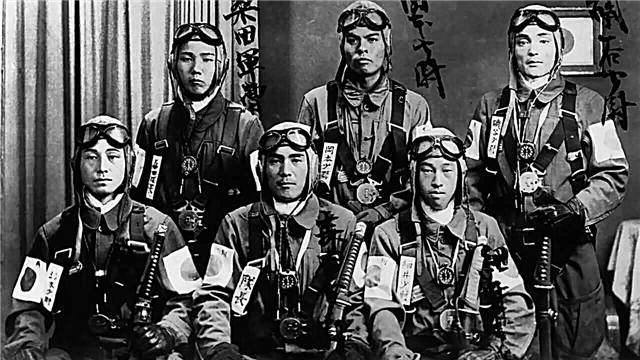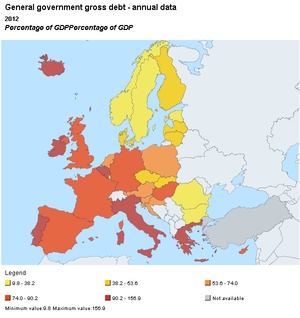To become an Olympic champion at least once in a lifetime is an unattainable dream for many athletes. But some lucky ones manage to win gold, silver and bronze medals not one, not two, but ten or more times.
We present you a list of the most titled Olympic champions in the history of sports.
10. Birgit Fischer, Germany
 There are 12 medals in total.
There are 12 medals in total.
Of these, gold - 8, silver - 4, bronze - 0.
Here is a photo of the only woman who managed to win at least two medals at five Olympics.
Fisher was 42 years old when she took gold in the four in the 500 m and silver in the pairs of 500 m. She became the oldest Olympic champion in canoeing and kayaking.
It's funny that Fisher is also the youngest champion, since she took her first gold in 1980, at the age of 18.
9. Paavo Nurmi, Finland
 There are 12 medals in total.
There are 12 medals in total.
Of these, gold - 9, silver - 3, bronze - 0.
This runner was part of a group of athletes from Finland who were called “flying Finns”. He quickly gained worldwide fame when he began his career at the Antwerp Olympics in 1920. His smooth and mechanical step at the beginning of the road was replaced by a violent jerk, when only a few meters remained to the finish line.
Nurmi set 22 official world records at distances from 1,500 meters to 20 kilometers. He is considered the greatest athlete of all time.
8. Ole Einar Bjoerndalen, Norway
 There are 13 medals in total.
There are 13 medals in total.
Of these, gold - 8, silver - 4, bronze - 1.
At the 2012 Winter Olympics, Björndalen did not leave a single chance to his rivals, having won 4 of 4 possible victories. He was the first in the world to become the absolute Olympic champion in biathlon.
However, Björndalen received his personal gold medal only 12 years after his finest hour in Salt Lake City. This happened in Sochi in 2014. Then the pride of the Norwegian team managed to beat the nearest rival a little more than a second, despite one miss at the start. That year, Björndalen became the oldest winner of the personal biathlon race in the history of the Olympic Games.
More recently, in 2018, the Norwegian athlete announced the completion of his sports career.
7. Takashi Ono, Japan
 There are 13 medals in total.
There are 13 medals in total.
Of these, gold - 5, silver - 4, bronze - 4.
This Japanese gymnast is one of three Olympians who managed to win at least 4 medals of each value. In addition, he became the first Olympic champion from Japan in gymnastics.
At the opening ceremony of the Tokyo Olympics in 1964, Takashi Ono was honored to pronounce the Olympic oath on behalf of all athletes. At the same Olympics, he won his last fifth gold medal.
6. Edoardo Manjarotti, Italy
 There are 13 medals in total.
There are 13 medals in total.
Of these, gold - 6, silver - 5, bronze - 2.
When it comes to fencing, no one will come close to the Italian maestro Edoardo Manjarotti, who turned out to be the most successful winner at the Olympic Games and World Championships.
Fencing talent literally flows through the veins of the Manjarotti family. Edoardo's father was a 17-time Italian sword fencing champion. He advised his son to become left-handed (although he was naturally right-handed) in order to gain an advantage in sports. Edoardo's fencing style was uncomfortable for rivals.
Manjarotti began taking fencing lessons at the age of 8. He trained with his brother Dario, who is also an experienced fencer. And Edardo won his first gold medal at the age of 17.
5. Boris Shakhlin, USSR
 There are 13 medals in total.
There are 13 medals in total.
Of these, gold - 7, silver - 4, bronze - 2.
The five Olympic athletes who won the largest number of medals included two gymnasts and one gymnast from the USSR. Shakhlin is the first of this trinity.
Being an orphan, without patronage, he managed to get to the sports Olympus, largely thanks to the support of his first coach V. A. Porfiryev, who taught the boy to fight to the last.
For a calm and confident manner of holding on during sports competitions, foreign journalists called Shakhlin "Russian bear."
4. Marit Björgen, Norway
 There are 15 medals in total.
There are 15 medals in total.
Of these, gold - 8, silver - 4, bronze - 3.
Although the Soviet gymnast Larisa Latynina has more Olympic medals than Björgen, the Norwegian skier is the most titled athlete in the Winter Olympics. She is considered the strongest skier in modern history.
However, the name Marit Björgen is associated with scandals. In 2009, she received FIS permission to use asthma medications that contained doping substances, including formoterol. This caused dissatisfaction with many other athletes. For example, the Polish skier Justina Kowalczyk said that without the help of drugs, Björgen could not have achieved the current stunning results.
3. Nikolai Andrianov, USSR
 There are 15 medals in total.
There are 15 medals in total.
Of these, gold - 7, silver - 5, bronze - 3.
In the brilliant career of Adrianov, his first coach Nikolai Tolkachev played a huge role. He persuaded the boy not to give up gymnastics, and even helped him with homework and attended parent-teacher meetings. And Tolkachev’s efforts paid off handsomely. His pupil became a multiple champion of the world, the USSR and Europe.
Until 2008, this Soviet athlete held the title of absolute champion in the number of Olympic medals, until the American Michael Phelps received his 16th medal.
2. Larisa Latynina, USSR
 There are 18 medals in total.
There are 18 medals in total.
Of these, gold - 9, silver - 5, bronze - 4.
This multiple Olympic champion has helped establish the Soviet Union as the dominant force in gymnastics.
Although Michael Phelps beat her in the total number of medals, Latynina’s record for the number of medals received in individual competitions (14) is still unsurpassed.
Latynina was so devoted to sports that she performed at the 1958 World Cup in Moscow, being in her fourth month of pregnancy. Her performances combined the elegance and entertainment of the dance with the stability and skill of an experienced athlete.
In 1966, Latynina became a coach of the USSR national gymnastics team. Her team took gold three times during the Olympic Games of 1968, 1972 and 1976.
1. Michael Phelps, USA
 There are 28 medals in total.
There are 28 medals in total.
Of these, gold - 23, silver - 3, bronze - 2.
The clear winner in the ranking of the most titled Olympic champions is the American swimmer Michael Phelps. It boasts both the largest number of Olympic gold medals and the largest number of medals in general. He is called the "greatest Olympian of all time."
The Baltimore Bullet (this is one of Phelps's nicknames) became the only 23-time Olympic champion in sports history. However, other Olympians have a chance to surpass this achievement, since after the Olympics in Rio in 2016, Phelps announced his final retirement from big sport.
Why is he so good?
The advantages of Michael Phelps are his height, weight and length of arms and legs. Its long torso and short legs reduce resistance to body movement in the water and allow you to swim forward as quickly as possible. However, he wears shoes of size 47.
Phelps' arms reach 203 cm and his height is 193 cm. While still a schoolboy, he could hug five classmates in one fell swoop. Noticing this feature, useful for the swimmer, coach Bob Bowman invited the young man to the swimming section.
If ordinary people are 80% water, then Phelps is 90%. He even got into the Guinness Book of Records as an athlete who can drink more liquid than he weighs - 91 liters.
And his heart is able to pump about 30 liters of blood per minute. Thanks to this, the most titled athlete in history quickly recovered from intense heats.












